 the turn of the '70s into the 1980s was filled with twists on the setting like Meatballs, Friday the 13th, and Gorp, among others.
the turn of the '70s into the 1980s was filled with twists on the setting like Meatballs, Friday the 13th, and Gorp, among others. 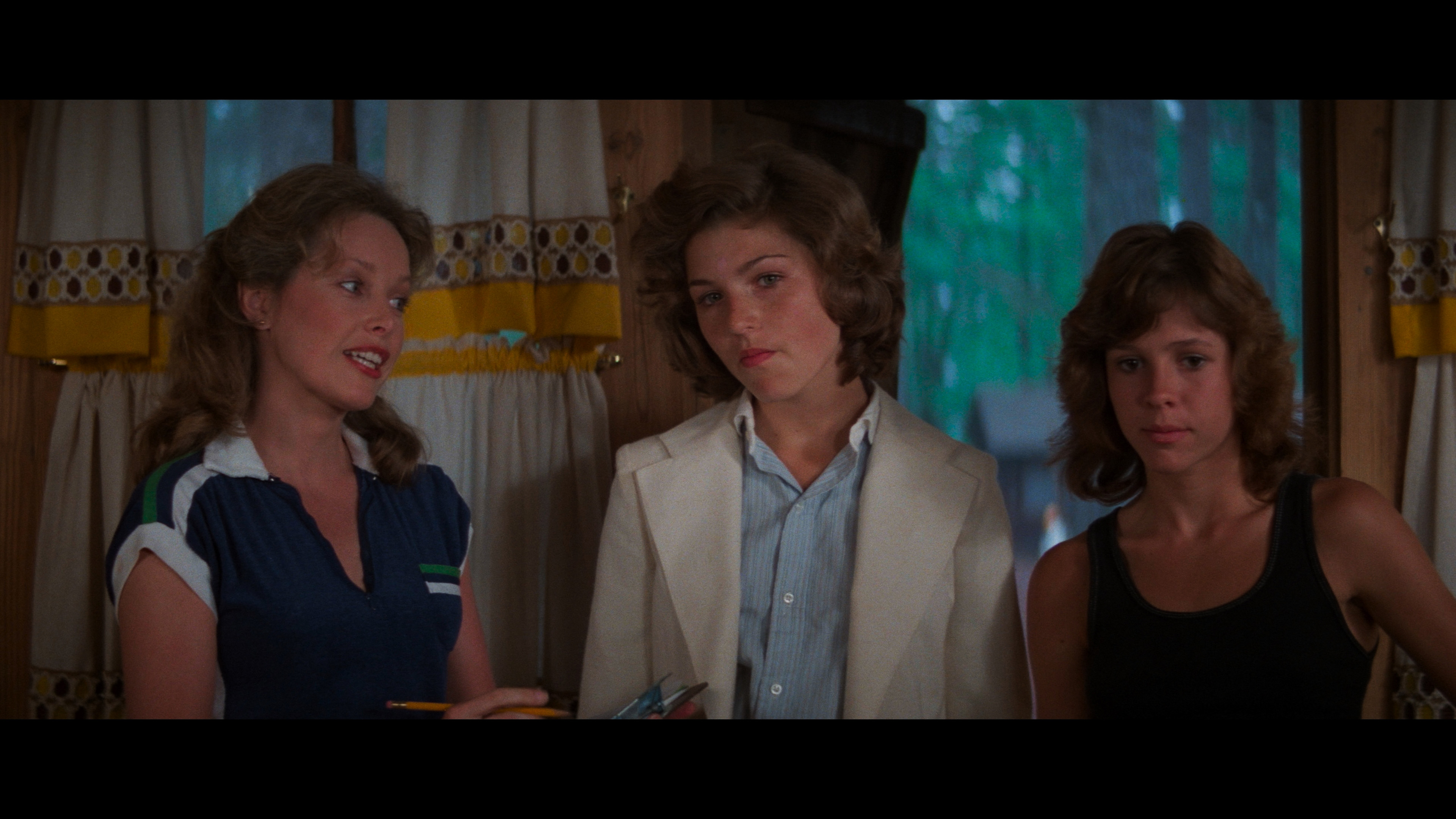 At the same time, theaters were a fertile ground for realistic looks at teen life, often with a heavy dramatic angle like Foxes or Over the Edge. A truly unique and still beloved entry from both of those cycles is 1980's Little Darlings, which mixes summer camp hijinks with a still moving and frank look at the passage to sexual maturity as seen through the eyes of adolescent girls.
At the same time, theaters were a fertile ground for realistic looks at teen life, often with a heavy dramatic angle like Foxes or Over the Edge. A truly unique and still beloved entry from both of those cycles is 1980's Little Darlings, which mixes summer camp hijinks with a still moving and frank look at the passage to sexual maturity as seen through the eyes of adolescent girls.  expected.
expected.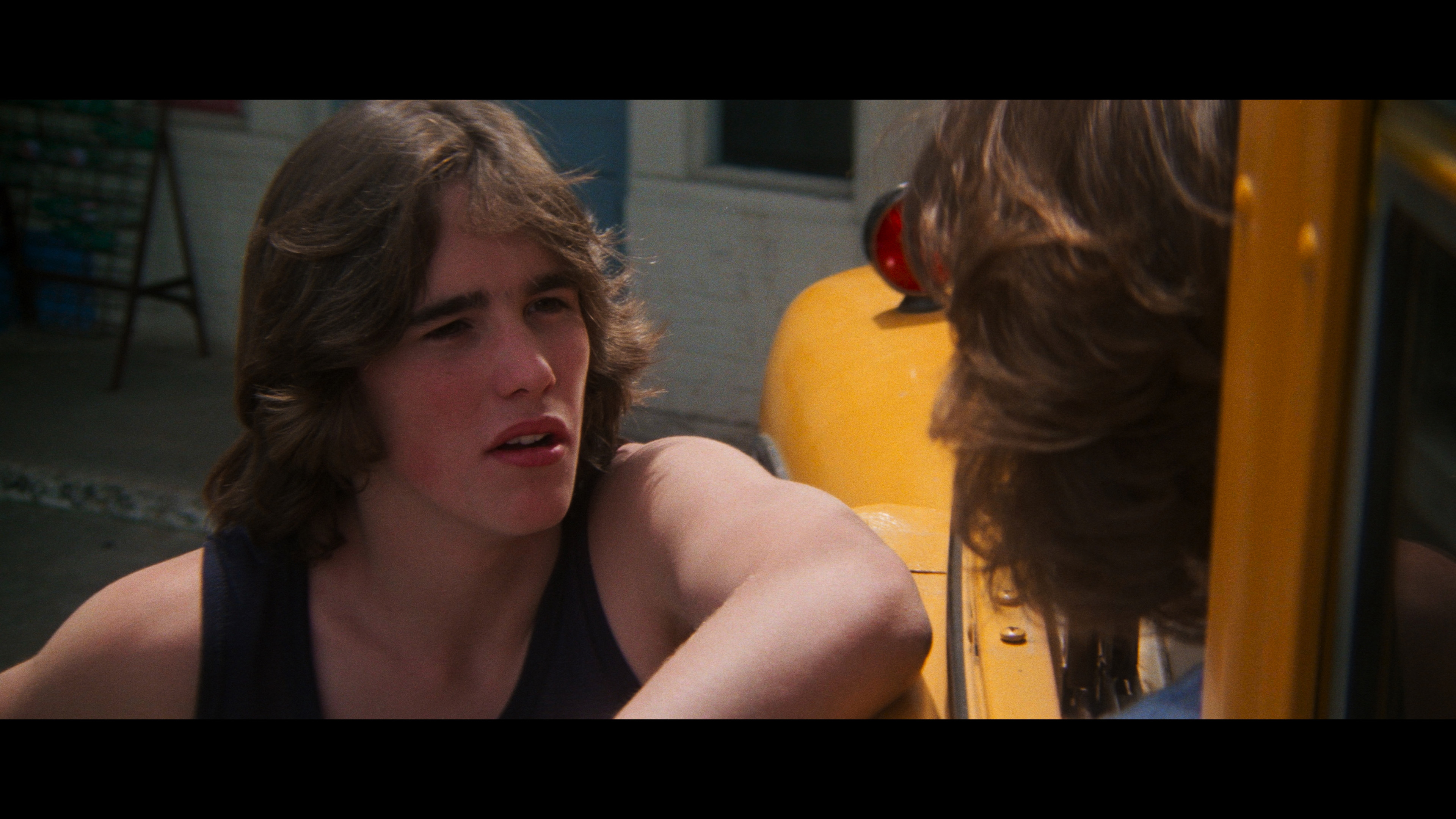 skilled performances of its two leads and its naturalistic portrayal of summer camp, with an appealing spectrum of campers among its supporting characters (including a very young Cynthia Nixon way, way before Sex and the City). Also effective is its pop song soundtrack (augmented by a score by the great Charles Fox), which unfortunately turned out to be a legal stumbling block after its first appearance on VHS (with a substitute tape reissue swapping out many songs and a DVD or Blu-ray version kept out of reach for decades). The film also proved to be a solid calling card for NYU grad Ron Maxwell, making his feature directing debut here before the following year's The Night the Lights Went Out in Georgia (also with McNichol and a title plagued by even more severe music licensing issues), the studio-cursed Kidco, and two of the most popular Civil War epics, Gettysburg and Gods and Generals. The sense of setting here is still incredibly potent, especially for anyone grew up in the South (this was shot in Georgia) with a unique distillation of how those humid summers feel.
skilled performances of its two leads and its naturalistic portrayal of summer camp, with an appealing spectrum of campers among its supporting characters (including a very young Cynthia Nixon way, way before Sex and the City). Also effective is its pop song soundtrack (augmented by a score by the great Charles Fox), which unfortunately turned out to be a legal stumbling block after its first appearance on VHS (with a substitute tape reissue swapping out many songs and a DVD or Blu-ray version kept out of reach for decades). The film also proved to be a solid calling card for NYU grad Ron Maxwell, making his feature directing debut here before the following year's The Night the Lights Went Out in Georgia (also with McNichol and a title plagued by even more severe music licensing issues), the studio-cursed Kidco, and two of the most popular Civil War epics, Gettysburg and Gods and Generals. The sense of setting here is still incredibly potent, especially for anyone grew up in the South (this was shot in Georgia) with a unique distillation of how those humid summers feel.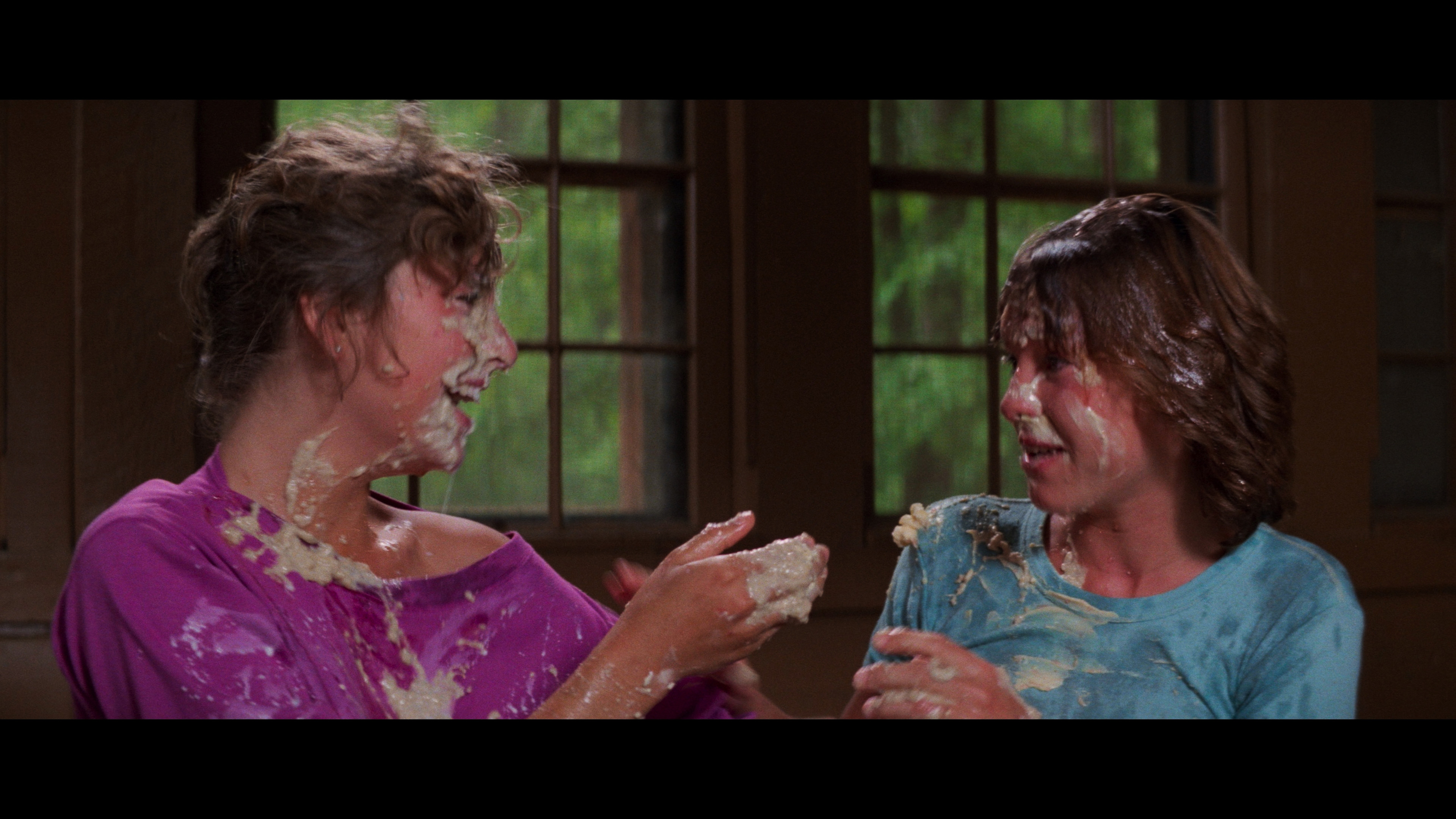 As mentioned above, Little Darlings has been somewhat jinxed over the years with its VHS editions brutally cropped from the original scope aspect ratio and the more readily available options missing some key songs, most significantly "Let Your Love Flow" over the end credits. The film fared better on TV and streaming, with a nice 2.35:1 edition with the original soundtrack turning up on Cinemax for years along with occasional
As mentioned above, Little Darlings has been somewhat jinxed over the years with its VHS editions brutally cropped from the original scope aspect ratio and the more readily available options missing some key songs, most significantly "Let Your Love Flow" over the end credits. The film fared better on TV and streaming, with a nice 2.35:1 edition with the original soundtrack turning up on Cinemax for years along with occasional 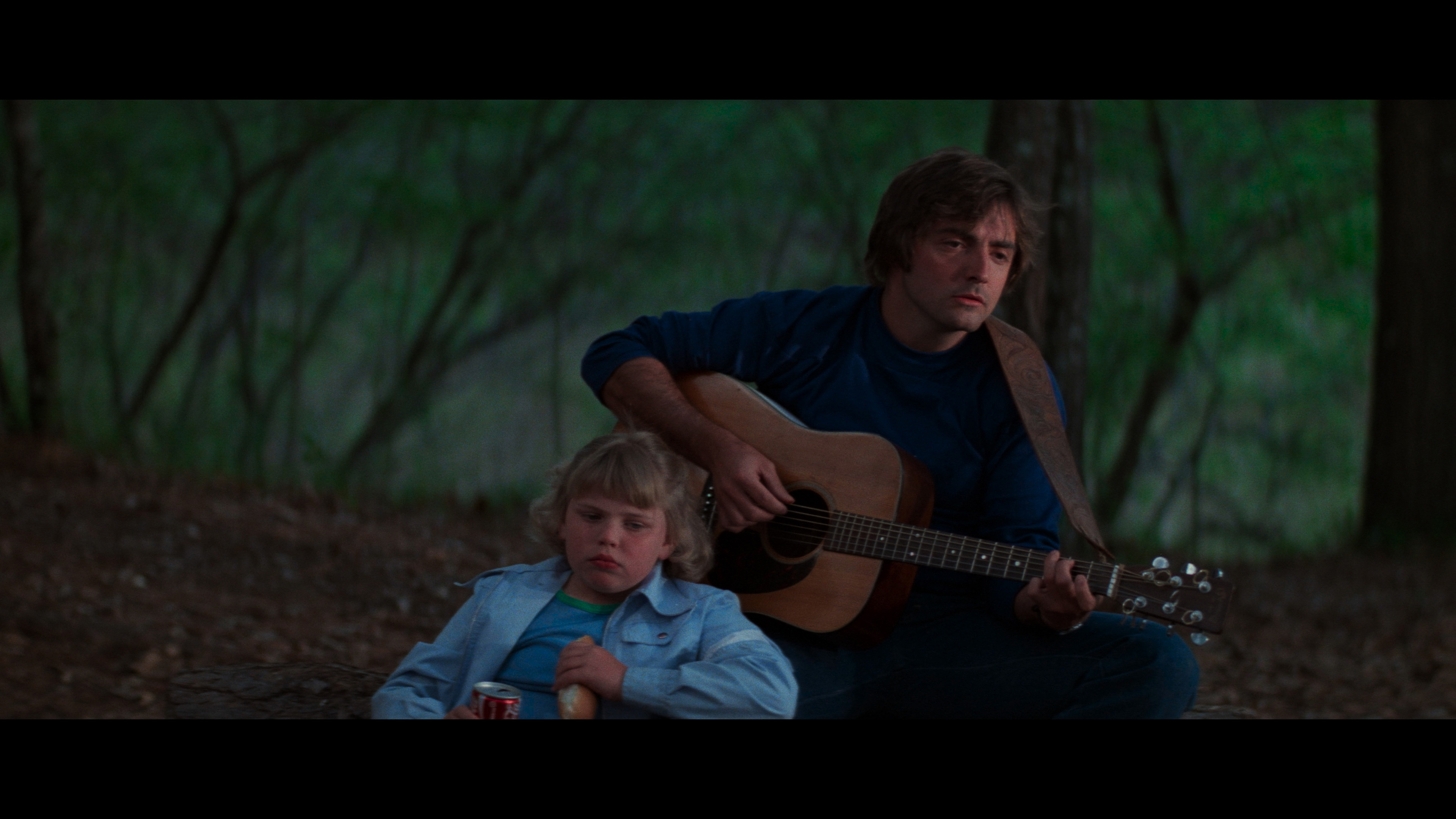 streaming platform appearances and an airing on TCM. Even better is its return to U.S home video as a 4K UHD and Blu-ray combo set from Vinegar Syndrome sublabel Cinématographe (its inaugural release), featuring a new 4K transfer from the original camera negative that bests the earlier HD version out there. Again the soundtrack is fully intact here, and the quality is excellent with the addition of HDR for the UHD really bringing out those vibrant shades of green and yellow in the camp scenes. It's a real joy to watch. The DTS-HD MA 2.0 English track is also in great condition (it's still theatrical mono as it always has been, not stereo as the specs announced), with optional English SDH subtitles provided.
streaming platform appearances and an airing on TCM. Even better is its return to U.S home video as a 4K UHD and Blu-ray combo set from Vinegar Syndrome sublabel Cinématographe (its inaugural release), featuring a new 4K transfer from the original camera negative that bests the earlier HD version out there. Again the soundtrack is fully intact here, and the quality is excellent with the addition of HDR for the UHD really bringing out those vibrant shades of green and yellow in the camp scenes. It's a real joy to watch. The DTS-HD MA 2.0 English track is also in great condition (it's still theatrical mono as it always has been, not stereo as the specs announced), with optional English SDH subtitles provided.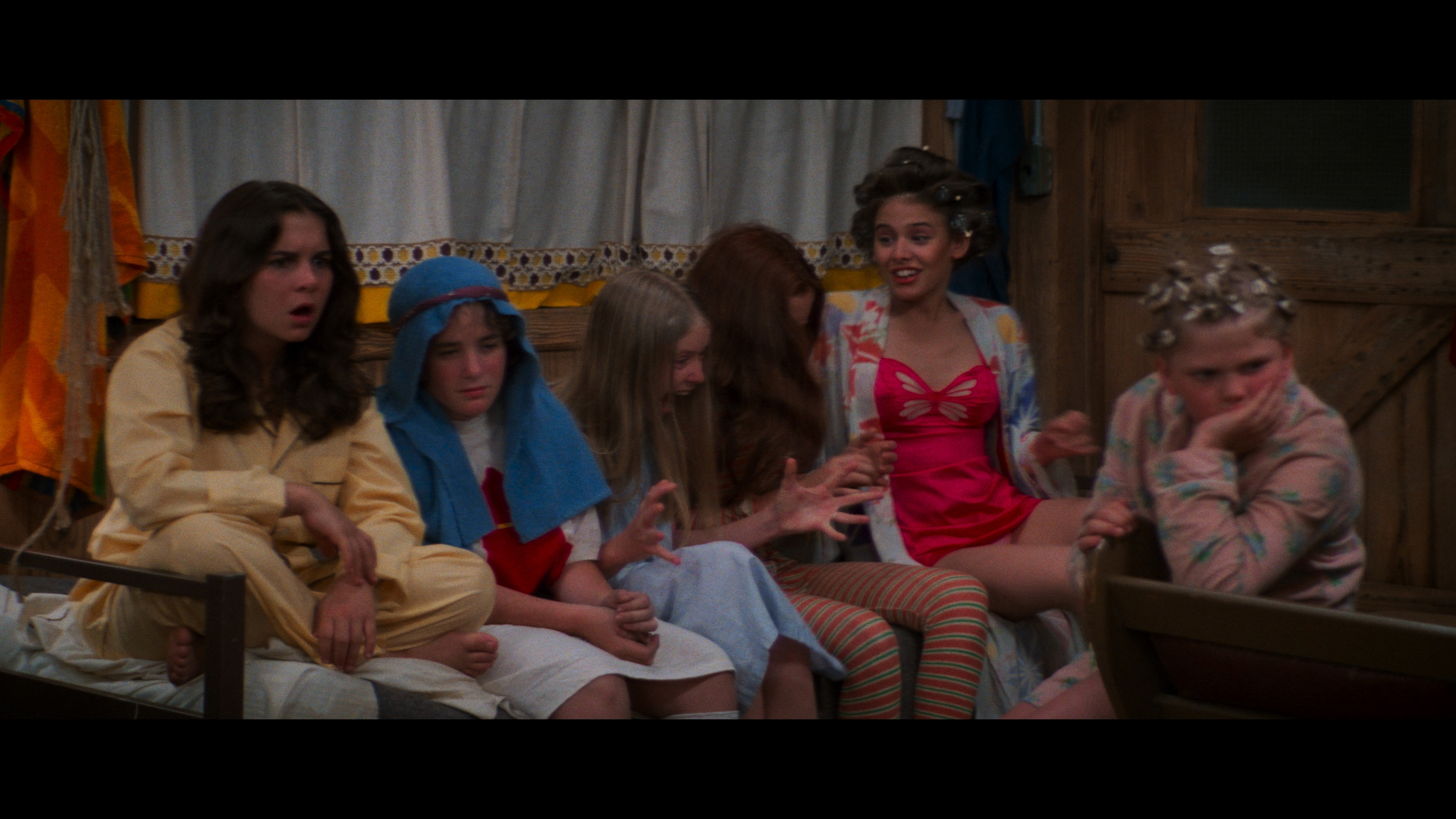 background behind the song choices, and pointing out details about the locations (some of which are no longer or changed dramatically). It's a great listen and actually increases your appreciation for the film even more. Also included is a batch of alternate scenes (5m53s), presented at 2.35:1 with timecode, more or less reflecting what was added to the TV broadcast version to make up for all the sex-related footage that had to be deleted; it's nice to
background behind the song choices, and pointing out details about the locations (some of which are no longer or changed dramatically). It's a great listen and actually increases your appreciation for the film even more. Also included is a batch of alternate scenes (5m53s), presented at 2.35:1 with timecode, more or less reflecting what was added to the TV broadcast version to make up for all the sex-related footage that had to be deleted; it's nice to 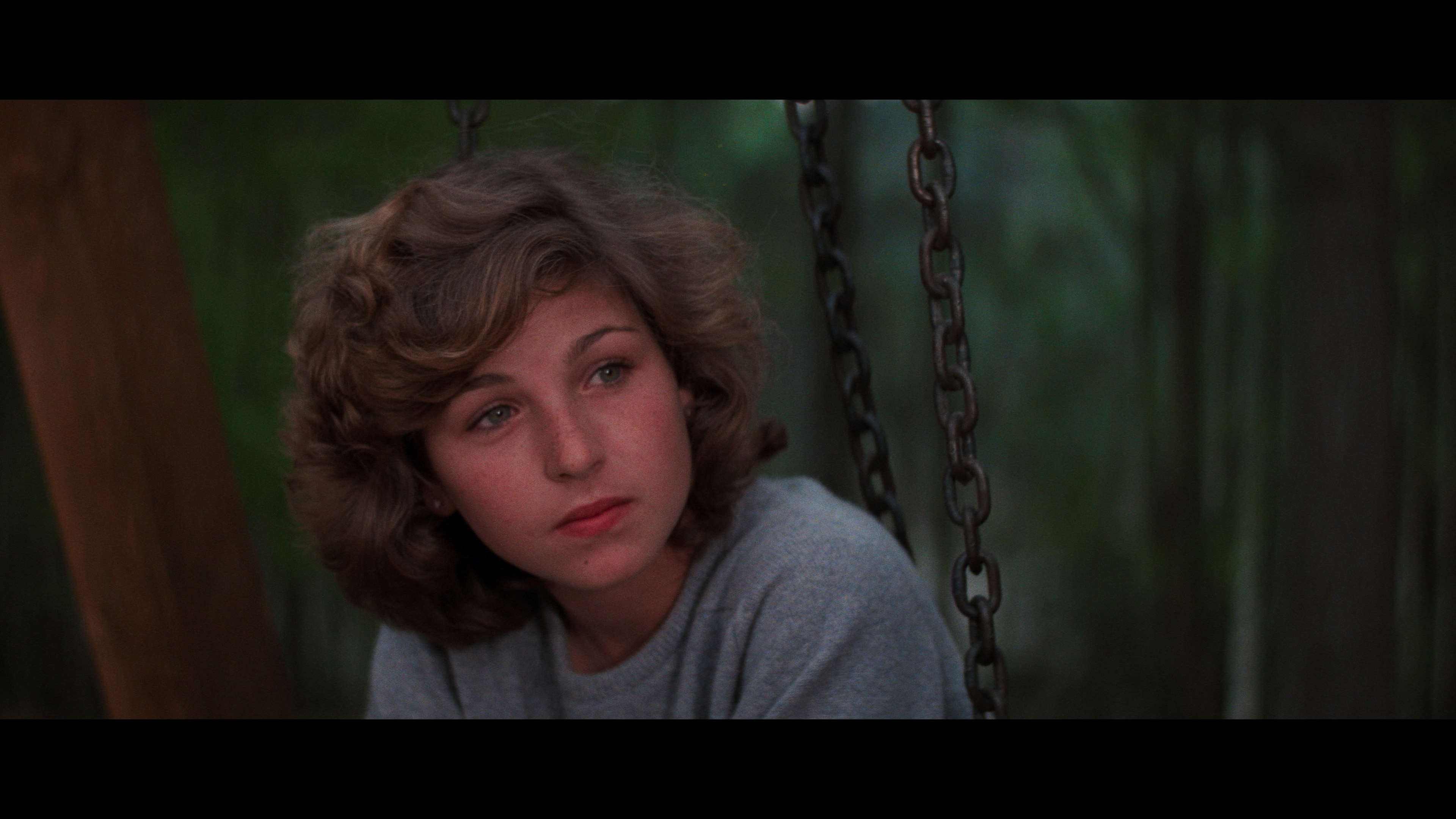 see here in much better quality than what was aired. Maxwell also provides an 11m14s audio piece about his reaction to the TV cut (which was done without notifying him) and the reasons behind cutting the most significant scenes. A 54m33s video interview with Maxwell starts with his early days in dramatic television and goes through his path to this film and its shooting in Georgia, which laid the groundwork for the rest of his career. It's a solid piece, though there's a loud thumping sound on the microphone on and off throughout. In the video essay "Don’t Let the Title Fool You: Little Darlings Beyond the Teen Sex Comedy" (19m47s), Samm Deighan skillfully tackles the prevalence of teen movies of all stripes in the late '70s and throughout the '80s, the treatment of teen female sexuality here, related drama "issues" films like the made-for-TV movies with Linda Blair, and the state of child actors at the time who transitioned into more mature roles. Also included in the set is a booklet with insightful essays by The Black List Kate Hagen and another TCM alumnus, Quatoyiah Murry, who present their own readings of the film and its significance as both a teen movie and a major contribution to '80s female cinematic perspectives.
see here in much better quality than what was aired. Maxwell also provides an 11m14s audio piece about his reaction to the TV cut (which was done without notifying him) and the reasons behind cutting the most significant scenes. A 54m33s video interview with Maxwell starts with his early days in dramatic television and goes through his path to this film and its shooting in Georgia, which laid the groundwork for the rest of his career. It's a solid piece, though there's a loud thumping sound on the microphone on and off throughout. In the video essay "Don’t Let the Title Fool You: Little Darlings Beyond the Teen Sex Comedy" (19m47s), Samm Deighan skillfully tackles the prevalence of teen movies of all stripes in the late '70s and throughout the '80s, the treatment of teen female sexuality here, related drama "issues" films like the made-for-TV movies with Linda Blair, and the state of child actors at the time who transitioned into more mature roles. Also included in the set is a booklet with insightful essays by The Black List Kate Hagen and another TCM alumnus, Quatoyiah Murry, who present their own readings of the film and its significance as both a teen movie and a major contribution to '80s female cinematic perspectives.![]()